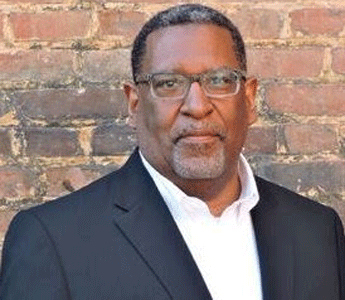Ronald Shelley had just retired as a long time principal in the Baltimore City School System when, approximately four years ago, he remembered sitting inside a local church in deep meditation and prayer.
“I was looking for guidance on the next steps in my life and how I might help my deteriorating and volatile community,” Shelley said.
As he sat in the pew, there was a knock on the church’s door.
“A man stood outside requesting to speak with me. He explained that he was gathering community support for a group of people who were opening a ‘Methadone Clinic’ to support addiction recovery, which would be [located] relatively close to 25th and Greenmount Avenue in Baltimore,” Shelley said. “Initially, I thought this was a crazy and insane idea. In fact, my thoughts were, ‘Why would someone put a drug treatment center in my backyard?’ The gentleman, who I knew from the community, was so sincere and kind, I listened and then agreed to meet with the group.”
Ultimately, Shelley began volunteering which eventually led him to create the Concerted Care Foundation, Inc., a nonprofit whose central theme is “volunteerism is a career path.”
The foundation focuses on rehabilitation, helping with career development and building skills to help recovering addicts to succeed.
Participants also are involved in community activities like landscaping and designing, and even grant writing.
Only two years ago, individuals with the Concerted Care Foundation cleaned and refurbished 26ers Park in the Harwood Community, a park once infested with crime.
The yearlong project included putting up a new fence and the overall cleaning of what Shelley once called “the park from hell.”
“The Concerted Care Foundation is devoted to identifying ideas and implementing rehabilitation strategies and solutions for strengthening our communities; specifically addressing the education, career, and social needs of its community, including individual services and advocacy,” Shelley said.
More than 42 million Americans need intervention and/or treatment while an estimated 20 million people are currently in recovery from some type of drug dependency, coupled with another 22 million people in need of treatment, according to the U.S. Department of Health.
However, the numbers do not represent the countless millions who need information about and prevention services for, drug addiction. Additionally, the levels of heroin and other opioid addiction in Baltimore, as well as in other cities, are at epidemic proportions, statistics have revealed.
In an ABC News Report, Baltimore was cited as the “U.S. Heroin Capital,” a notorious designation.
In January 2015, Governor Larry Hogan declared a State of Emergency in Maryland because of the addiction crisis and, one month later, he created a Heroin and Opioid Emergency Task Force to address the increasing epidemic of drug addiction in the state, with the purpose of earmarking specific funding for addiction counselor intervention and prevention treatment programs.
Shelley says Concerted Care Foundation was started to be part of the solution.
Success stories include individuals like Brian C., Nina N., Anthony M., and Harry J., all who arrived at the foundation without a direction and in need of services, Shelley said.
Each now are working full or part time jobs.
“It’s been a slow go, but segments of the community have given support, like Harwood Community Association and Strong City Baltimore. These organizations were vital in the Foundation’s $5,000 grant to install a fence as a part of 26th Street Park rejuvenation,” Shelley said. “Part of the work of the Foundation is to address the stigmatization of individuals who are in recovery and the process is on-going.”
Shelley says he wants to highlight the work the foundation does to get those in recovery and the homeless affordable housing, and to put them on the path to one day owning their own home.
“The foundation connects community members to important resources, vital records, insurance, career development, education, housing and other [solutions],” Shelley said. “We help develop our members to return back to being productive members of their community.”
For more information about Concerted Care, to make a donation or to find out how you can become part of the solution, visit http://concertedcarefoundation.org/why-donate/.
